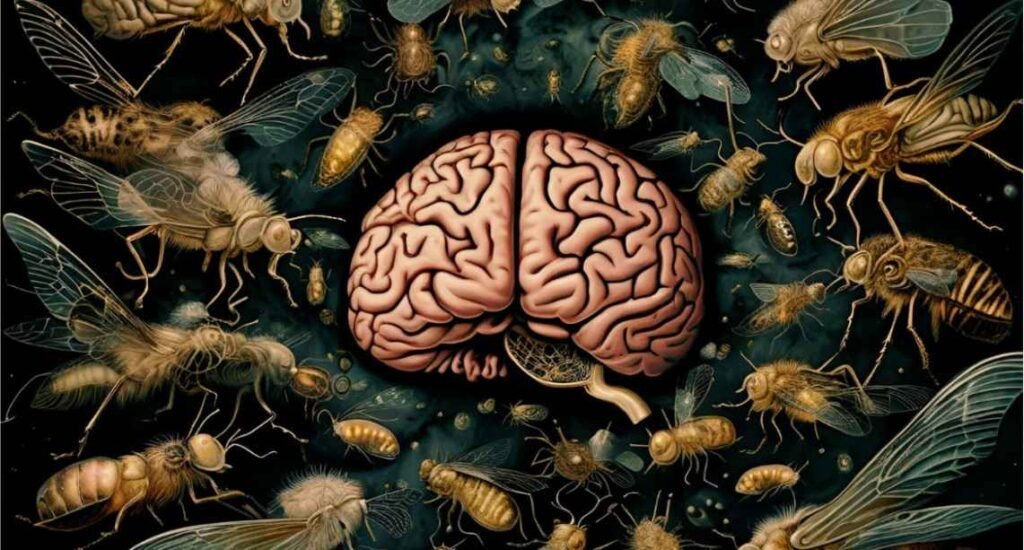
Oxford University Press has announced “brain rot” as its 2024 Word of the Year. The term, which describes the perceived decline in mental or intellectual capacity due to excessive consumption of trivial or unchallenging online content (unlike the Guardian’s new word game), reflects growing societal concerns about the impact of digital media on cognitive health and cultural engagement.
Originally appearing in Henry David Thoreau’s 1854 work Walden, where it criticised society’s preference for simplicity over complexity, “brain rot” has taken on new life in the digital age. Platforms like TikTok and Instagram, which prioritise short-form, highly engaging content, have fuelled its usage, particularly among Gen Z and Gen Alpha. The phrase is often employed humorously or self-deprecatingly to acknowledge the effects of bingeing low-value media, such as repetitive memes, clickbait videos, or influencer drama.
Casper Grathwohl, President of Oxford Languages, emphasised that “brain rot” captures the zeitgeist of 2024, a year marked by intense debates about technology’s impact on daily life. “This term speaks to the self-awareness many young people display about their own digital consumption habits,” he noted. “It’s a unique moment where the tools of the so-called ‘brain rot’ are being used to critique it.”
A Broader Commentary on Work, Sex, and Technology
The selection of “brain rot” also intersects with ongoing discussions about how technology shapes modern work, including the sex work industry. Digital platforms, while democratising access and creating opportunities for autonomy in industries like sex work, have simultaneously been criticised for contributing to “brain rot” through hyper-commercialisation and the commodification of human interaction.
Sex work has increasingly shifted to online spaces, where platforms such as OnlyFans or subscription-based services allow creators to monetise their labour while engaging directly with audiences. However, these platforms often perpetuate the addictive qualities of digital engagement, where users consume content rapidly, potentially trivialising emotional or intellectual connections. Critics argue that such dynamics are emblematic of broader patterns of “brain rot,” where even intimate and historically taboo subjects are packaged for bite-sized consumption.
Public Participation and Cultural Resonance
The selection process for Oxford’s Word of the Year included a public vote, with “brain rot” emerging as the winner from a shortlist that featured terms like “demure,” “dynamic pricing,” “lore,” “romantasy,” and “slop.” With over 37,000 votes cast, the decision reflects a collective awareness of how deeply intertwined technology, culture, and mental health have become.
As debates around digital well-being and consumption intensify, “brain rot” stands as a sharp cultural critique. It serves as both a warning and a mirror, inviting reflection on how we engage with our digital worlds and the content we create and consume.
Examples of “Brain Rot” in Daily Life

Soap Operas and Reality TV have been criticised for contributing to brain rot.
- Endless Scrolling on Social Media: Spending hours on apps like TikTok or Instagram watching short, low-effort videos, often forgetting what you’ve seen moments later.
- Binge-Watching Reality TV: Consuming entire seasons of reality shows or competitions that prioritise drama over substance, leading to mental fatigue.
- Doomscrolling: Obsessively reading bad news or negative content online, leaving you emotionally drained but unable to stop.
- Overuse of Clickbait Articles: Clicking on sensational headlines with little substance or value, often leading to a shallow understanding of topics.
- Repetitive Meme Consumption: Laughing at and sharing the same meme formats over and over, creating a cycle of mindless entertainment.
- Mindless Gaming: Playing mobile games with repetitive mechanics and little intellectual challenge for hours on end.
- Algorithm-Induced Rabbit Holes: Being pulled into endless streams of similar content by algorithms, leaving little room for discovery or diverse learning.
- Fandom Wars and Online Drama: Engaging in or following heated debates about pop culture or influencer gossip that offer no meaningful insights or outcomes.
- Over-reliance on Generative AI: Using tools like ChatGPT or DALL-E to complete tasks without deeper engagement or critical thinking, reducing problem-solving skills.
Each of these reflects behaviours that may contribute to “brain rot,” highlighting the need for conscious media consumption and balance in our digital lives.




